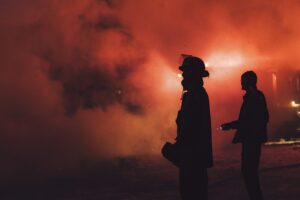Researchers have found a link between air pollution and psychotic experiences in teenagers.
The study, undertaken by scientists from King’s College London and published in JAMA Psychiatry, looked at why growing up in cities could be a risk factor for psychosis, which includes experiences such as hearing voices and paranoia.
The research used data from the E-Risk study, funded by the Medical Research Council, which includes data on 2232 children born in England and Wales. Young people were assessed for psychotic experiences and asked questions such as ‘do you hear voices that others cannot?’ and ‘have you ever thought you were being watched, followed or spied on?’.
The data on psychotic experiences was linked with hourly estimates of air pollution at 20×20 metre grid points throughout the UK.
Combining home addresses with two additional locations where the young people spent substantial amounts of time at age 17 meant the researchers could accurately model their exposure to air pollution over the space of a year.
They found that psychotic experiences were significantly more common among adolescents with the highest exposure to nitrogen dioxide (NO2), nitrogen oxides (NOx), and very small particulate matter (PM2.5), even after accounting for known risk factors for psychosis.
NO2 and NOx together accounted for 60% of the association between living in an urban environment and having adolescent psychotic experiences.
Lead author Dr Joanne Newbury, from the Institute of Psychiatry, Psychology & Neuroscience (IoPPN) said: ‘We found that adolescent psychotic experiences were more common in urban areas.
‘While the study could not show pollutants caused adolescents to have psychotic experiences, our findings suggest that air pollution could be a contributing factor in the link between city living and psychotic experiences.’
‘The researchers say that whilst significant, further studies which track the association between air pollution and psychotic experiences over longer periods of time are needed. More work also needs to be done to understand if there are biological mechanisms linking air pollution to adolescent psychotic experiences and to rule out potential confounding factors like noise pollution.’
















